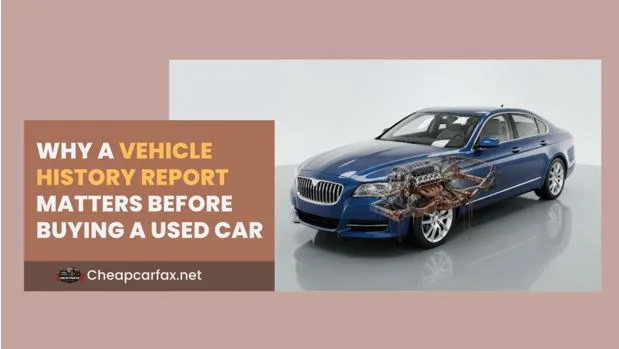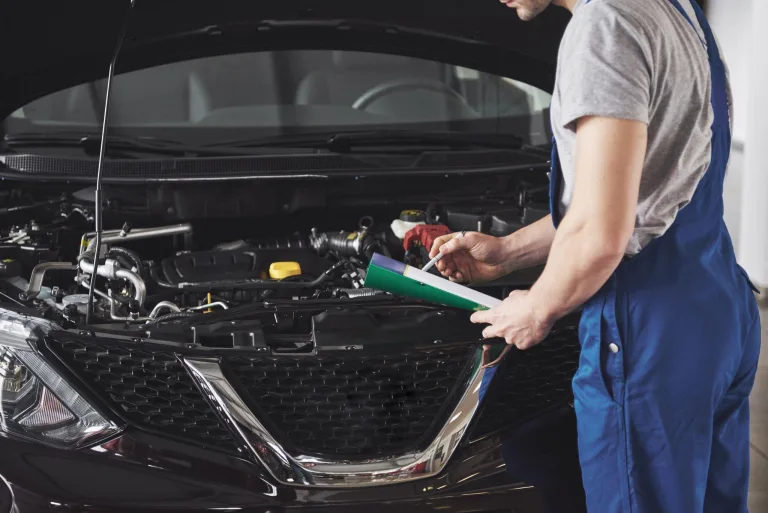Why a Vehicle History Report Matters Before Buying a Used Car
Buying a used car to save money seems like a good idea, but it can also be risky. A polished body and neat seats do not tell the complete background. Cars carry hidden pasts that may not show on the surface. This is where a vehicle history report becomes important.
What Is a Vehicle History Report
A vehicle history report offers all the information we need to know about a car’s past, like who owned it and what repairs or accidents it has had. The VIN, or Vehicle Identification Number, is what it’s founded on. Every car has its own unique VIN, which connects to information in both public and private databases.
The report usually has information about accidents, odometer readings, titles, service records, and recall notices. It can also tell you if the car has ever been rented out, utilized as a taxi, or worked in some other business capacity. With this information, customers may see how the car has changed throughout the years.
Why You Need One Before Buying
Used car sellers do not always share everything about the car. Sometimes they do not even know the full history themselves. A vehicle history report gives you facts that protect you from making a poor choice.
Many buyers spend thousands on a car, only to find out later it was in a serious crash. Or worse, finding out that the title has been destroyed by a flood, making it dangerous to drive. Before money changes hands, a simple report can show these problems.
Key Details Inside the Report
The most important section for many buyers is the accident history. It shows when accidents happened, what type of damage occurred, and whether the car was considered a total loss.
Another section tracks the odometer. If the mileage figures don’t match up over the years, it could signify that the odometer was turned back. This kind of scam raises the price unfairly and hides to what extent the car has really worn down.
Another important aspect is the status of the title. A clean title signifies that the car hasn’t been identified as having big problems. But a salvage or rebuilt title means that an insurance company had initially said the car was an entirely loss. Flood titles indicate that the car was damaged by water, which might lead to electrical difficulties that last a long time.
Service and maintenance documents can tell you how well the car was taken care of. A responsible owner will change the oil, check the brakes, and have the car checked up regularly. Not having records could suggest that you don’t care.
There is also information about recalls. When a company finds a safety problem, it initiates a recall. A lot of recalls don’t get fixed, which puts purchasers at risk.
Free Vehicle History Reports
Many people search for a free vehicle history report. Some websites offer them, but the free version often has limited data. You might only see registration details or the number of past owners. Important details like accident history or repair records are often missing.
Free reports can be useful for a quick check, but they should not be the only source. For a safe purchase, a full report is a better choice. Spending a small amount upfront can save thousands later.
Carfax Vehicle History Report
Carfax is one of the most well-known companies. A lot of customers and dealers trust a Carfax vehicle history report. It normally has thorough information about accidents, service records, checks of the odometer, and recall notices.
The downside is cost. A single Carfax report can be around forty dollars. This adds up quickly if you are checking several cars before making a choice.
Affordable Alternatives
Carfax is not the only option. Other companies offer the same official data at a lower price. Some providers sell bulk packages for dealers, which lowers the cost per report. These reports can be just as reliable if the provider connects to the right databases.
When choosing an alternative, look for clear accident details, title information, and service history. Avoid services that only give vague summaries. The goal is to get verified data you can trust.
How to Get a Report
Getting a vehicle history report is easy. Find the VIN first. You can locate it on the documentation for the automobile, on the dashboard near the windshield, or inside the driver’s door. After you get the VIN, go to the website of a trusted source. Type in the number, pay for the report if you need to, and then download it.
Carefully read the report. Look for signs of trouble, such salvage titles, airbags going off, or water damage. Make sure that the odometer readings go up steadily over time by checking them against each other.
Why You Should Not Skip This Step
Some buyers think they can judge a car by looks alone. Others trust the seller’s word. This can be a costly mistake. A vehicle history report is like a safety net. It reduces the chance of buying a car with hidden damage or fraud.
Even if the report looks good, check it with other things. Drive the car around for a while. Get a mechanic to look at it. These steps work best when done together.
Facts About Vehicle History Reports That Are Common
A lot of people think that free reports are the same as paid ones. This is not true. Free reports often leave out critical details. Another myth is that a clean report means the car has no problems. Some accidents or repairs never get reported, which is why inspection is still vital.
Some also think only dealers need reports. In reality, private buyers need them just as much. Spending a small fee now prevents larger losses later.
Final Thoughts
One of the best things a used car buyer can do is get a vehicle history report. It has information about accidents, the status of the title, the odometer readings, recalls, and the service history. Basic checks can be done with free reports, but complete reports actually safeguard you.
Carfax is a popular option, but it can be cost-effective. Cheap options give you the same important information for less money. Use a reliable source, read the report carefully, and do a proper examination to get the most out of it.
Buying a used car is an enormous choice. Don’t overlook this easy step and put your money or safety at danger. Get a vehicle history report, study it, and buy with confidence.
Media Details:
Company: CheapCarfax
Country: United States
Website: cheapcarfax.net
Conatct: [email protected]



